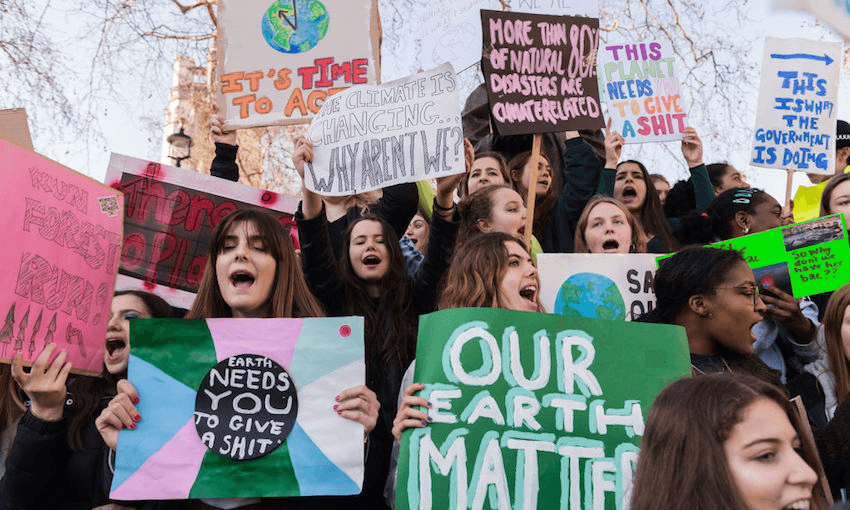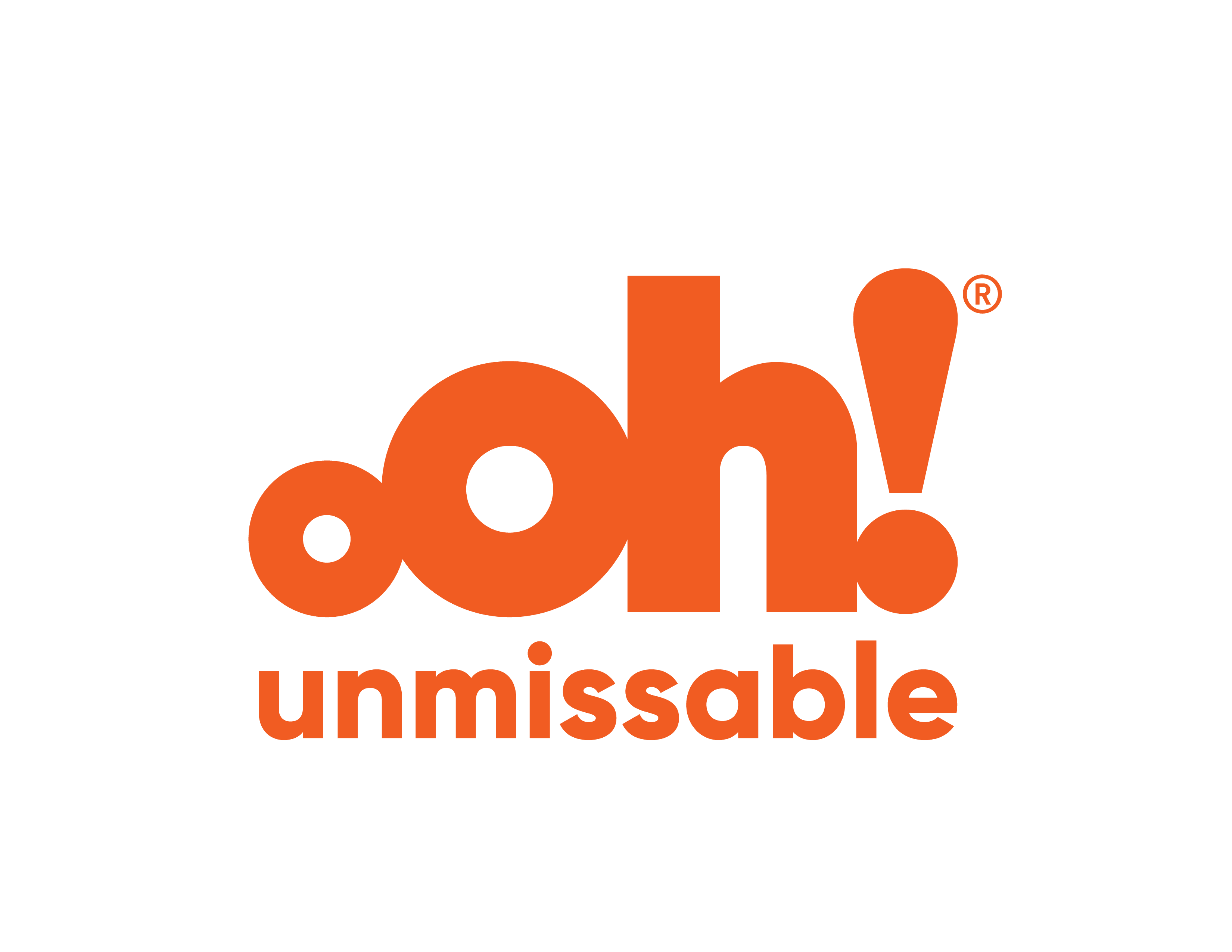It’s one of – if not the most pressing issue facing humanity today, so why can it still be so hard to get people to pay attention to climate change?
Climate change and the fight to stop it is discussed every day, but another related issue is nearly as knotty and barely rates: that of how to talk about it in a way which induces the desired response.
Nikki Wright runs Wright Communications and has worked with clients like Toyota and Urgent Couriers in the sustainability space for almost 20 years. David Robertson runs Hardwired, a consultancy which deploys behavioural psychology to nudge consumers toward the desired behaviour.
Together they told Duncan Greive on the latest episode of The Fold how to bring your audience with you when you’re talking about big, gnarly issues like climate change.
Listen to The Fold, a podcast series brought to you by The Spinoff and oOh!media. Conversations about the intersections of media, culture and technology in New Zealand, hosted by Duncan Greive.
Duncan Greive: Nikki, I wonder if you could start by telling me about the founding impetus for Wright Communications?
Nikki Wright: There were two major things really. In May 2006 I watched Al Gore’s An Inconvenient Truth, and I have to say that it really lit a fire inside me. It was so confronting. At the time I was working in corporate communications, and really in highly regulated industries, oil, pharmaceuticals. These companies have amazing management systems. And I was focusing on corporate social responsibility for them, but I was thinking it’d be amazing to do the same kind of work, but for companies that were more inclined to be doing the right thing in general.
It was about December that year, I had basically decided I’m going to set up my own agency. I bought four computers and a Cisco phone system, and upskilled myself on FSC certification and got some business cards printed with vege inks and rented some space in downtown Auckland, and Wright Communications was born. We were set up to serve companies that were really engaged in sustainability, and needing help communicating that mission.
DG: This still feels like an evolving conversation, but also what you’re describing happened almost 20 years ago now. When you took the proposition to people, what was the reaction?
NW: There was a growing membership of organisations joining the Sustainable Business Network, and what is now the Sustainable Business Council. We could see there were a number of companies, but there weren’t many specialising in the PR side of things.
There were entrepreneurial companies doing the mahi; Ecostore, Urgent Couriers were carbon neutral, but they didn’t have a dedicated comms agency helping tell those sustainable stories. The likes of Toyota, they were our first major company, and they have been loyal to us ever since. And over the last 17 years, you know, we’ve really challenged each other.
DG: David, you founded Hardwired, which is a consultancy focused on behavioural psychology, which, in the context of New Zealand, is a relatively specialised discipline. Tell me about where that came from, and how you interact with your clients?
David Robertson: Not a dissimilar story to Nikki really. What drove me to found Hardwired is, I was seeing businesses and their customers, customers and businesses, and this yawning chasm emerging, where neither were connecting to one another.
I think that there was basically a general lose/lose. The customers were not getting the relationship nor the value that they wanted from a business and certainly businesses were not connecting to customers and that, if anything, has just increased as economic pressures increase.
What I was seeing was business being dehumanised. I had been working for some time with the psychology of people, whether that was at a cultural level, a customer level or a business level, and the emotional hardwiring of those people. As human beings we’re hardwired to do what we do, whether we choose to do it or not, like fight or flight.
What we were seeing was that if we could humanise the relationship between customers and businesses, some remarkable things could and would occur. We’re very new to applying it to businesses, not many people are using behavioural economics at a business level.
DG: There’s a frequent reference to this idea of an “emotional connection” that a client or a customer might make to a business, which people can be cynical about. But is there an example of a client that you’ve worked with, where the insights that you’ve delivered or the research that you’ve uncovered has had an actual tangible impact on the way they conduct themselves and how they articulate that?
DR: That’s our world with all of our clients. If we were not achieving that, I think we’re not really getting where we need to be. The thing we’re talking about here is a paradigm shift.
When it’s done authentically and done well, we have a term we call it “we together,” which is where our business and its customers feel that they’re in this together. And that “together” means that the role as a customer is supporting a societal or community value: the business benefits and the customers benefit.
DG: Do you sense that the political-economic focus on cost of living, which has sometimes explicitly said, “we’re just gonna have to take a break from progress on those other goals” has dented an overall interest in people and businesses talking about sustainability? How would you counter that from a broad, emotional behavioural science or communication perspective?
DR: I think if you take the approach that sustainability initiatives are done to people, or are done separately, like they’re a little sidebar or separate initiative, and therefore they can be turned off or on, then inevitably, they will be turned off or on, depending upon the economic climate.
I think that’s indicative of the issue that we have with anything cause-related – it becomes voluntary, or perhaps only necessary when there’s money. And I think that’s the singular problem with thinking about sustainability or any cause-related issue this way.
If it’s done with people, and people are doing sustainability, we’re doing this together, then I think no matter what happens, no matter what the political or economic climate, it’s done together. That’s when communities in society say “no, this is so important. We can’t turn this off, we have to do this together.”
NW: Individually, I think there’s people out there, most of New Zealand, who are really, really struggling with the cost of living. And so you go into that scarcity mindset, of “how can I save?”, and sometimes you do drop the thing that could have an environmental benefit, because there was a price premium attached to that. So I think that is true, that is happening.
However, at a corporate level, there is more momentum than ever. We see this in the Climate Leaders Coalition, we see this with compliance through the Task Force for Climate Related Financial Disclosures, and the soon to be released Nature-Related Disclosures. So there’s, there’s a momentum building at that corporate level.


